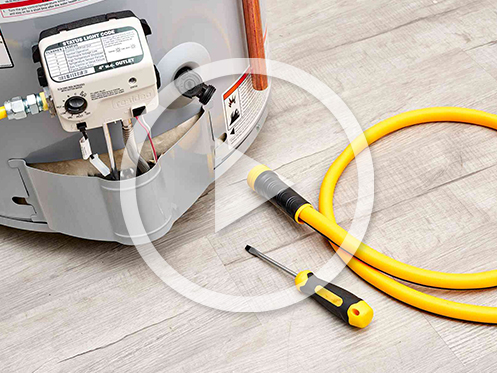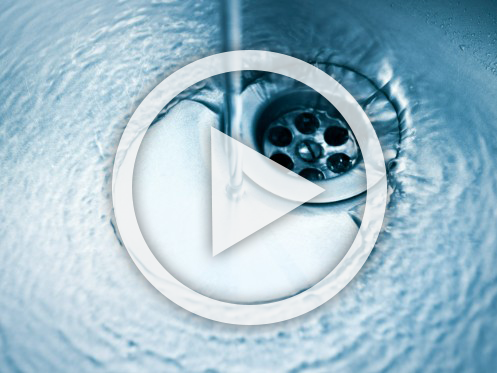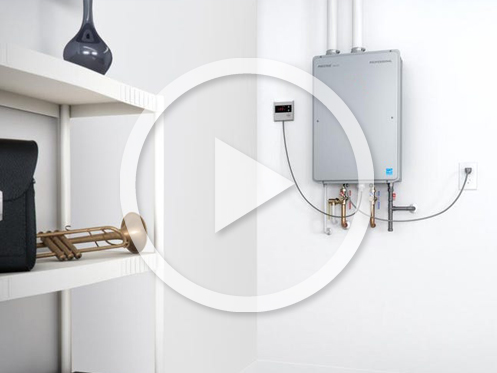Updated January 17, 2024
Clogged drains are among the last problems you want to encounter while using your sink. Not only can clogged sinks create an unappealing backflow of dirty water, but they can also create serious plumbing problems like burst pipes or interior mold. Clogged sinks often result from a buildup of waste like soap scum, grease, food, debris, or hair. This buildup can harden and create significant problems for your pipes, basins, and fixtures. A look at the best ways to unclog a sink can help you make the best decision for your property and help restore functional drains in no time.
Can I Unclog a Sink Myself?
While some homeowners may feel tempted to unclog their sinks themselves, this is the last thing anyone should do. Aggressive home remedies like pouring gallons of hot water down the sink can cause the problem to spread. In addition, commercial drain cleaners from the hardware store tend to contain abrasive ingredients like lye, nitrates, acid, and metals. These components can quickly corrode, strip, or damage your pipes. Chemical drain cleaners also release toxic compounds and fumes that contaminate your water supply and pollute your lawn soil. If clogs or backups affect multiple sinks in your house, you may have a significant main line issue that requires immediate professional care. Attempting to tackle the problem yourself can create additional plumbing problems that are even more expensive. It is far better to contact a home services company to troubleshoot or diagnose the clog and select the most appropriate method to fix your sink.
What Methods Do Experts Use to Unclog Sinks?
Unclogging a sink is a job for professionals. Plumbing requires years of training and involves the use of ever-involving technology. Professional plumbers use various tools ranging from pipe wrenches and blow torches to hydro-jetting machines. The top methods implemented include plunging, snaking, and cable cleaning. A closer look at each significant technique provides insight into the best treatments for your system.
Pipe Inspection
The process of unclogging your sink typically begins with a pipe inspection. Even without a clog, most experts recommend that a home services professional conduct a pipe inspection every two years. Inspections can include manual detachment or remote viewing using high-definition video equipment. Professional inspection helps plumbers identify the exact location of the congealed mass or clog and provides clues on the best plan of attack for extracting it.
Pipe Cameras
The next step a professional may take to unclog a sink is to use pipe cameras. While the camera itself does not dislodge the clog, it can pinpoint various details about the pipe obstruction. A pipe camera is a miniature instrument attached to a fiber optic cable. After setting up the camera, a technician can dispatch this tool into your sink for optimal viewing before getting to work.
Sink Plungers
Following inspection and camera work, technicians can begin unclogging your sink with the tools of the trade. One such tool is the professional-grade sink plunger. This plunger has a long handle attached to a suction cup designed to lay flat over your drain. The suction cup creates a vacuum effect with enough force to dislodge the clog. If this tool does not complete the task, the clog is usually much deeper. Therefore, the technician may switch to maneuverable instruments to reach the obstruction.
Manual Drain Snakes
A drain snake is a probing tool that rotates slowly as a technician pushes it through a stubborn clog. Also known as a plumber’s snake, this tool looks like a long cable with an end that resembles a corkscrew. Technicians start the process by inserting this corkscrew-shaped hook into the drain opening of your sink. The rotation cycle begins when the technician turns the cable handle, allowing the corkscrew portion to twist and break up the clog. Manual drain snakes are helpful with clogs that are too far to dislodge with a plunger but close enough for a plumber to maneuver using the corkscrew method.
Motorized Drain Snakes
If a blockage is further down the drain line, a plumber may need to use a motorized drain snake. This tool operates on the same principles as the manual drain snake but includes a powered connection that provides more energy to push through deeper or more stubborn clogs. Whereas the average manual drain snake reaches down 10 feet, some motorized drain snakes can extend as far as 150 feet. Combined with the motor’s additional torque, power, and continuous rotation, this drain snake is a powerful tool to reach clogs in complicated locations. Motorized drain snakes can be either wired or cordless. Some operate via batteries, while others use electrical connections. With the push of a button, these drain snakes can help with blockages that occur due to tree root infiltration, grease, or food waste. However, if your plumbing is particularly old or corroded, your technician may choose a different method that is less likely to scrape fragile pipes.
Traditional Sink Augers
A sink drill is similar to a drain snake. However, whereas a drain snake tackles smaller sinks and drains, a sink drill is suitable for larger sinks. And while most drain snakes extend deep into the plumbing, the sink auger is for external use. Traditionally, the sink auger is broader than the drain snake. Also known as a drum auger or canister auger, the sink auger consists of a handheld drum canister affixed with a flexible cable. To operate the auger, a technician inserts the tip of the cable portion and twists the canister until the cable reaches the clog. The plumber then snags the clog and pulls it out of the sink.
Hydro-Jetting Machines
For the toughest clogs or as the most advanced method, plumbers used hydro-jetting machines. A hydro-jetting machine is an industrial-grade tool that sends pressurized water into your sink to remove drain buildup. The machine delivers this pressurized water via a hose and nozzle. Some machines can emit water pressure as powerful as 35,000 pounds per square inch (PSI), effectively scouring the clog from your pipe’s walls. In addition to removing tough clogs, hydro-jetting is an effective method for thorough drain cleaning. If done correctly, this process can remove years of hardened grease and soap scum.
Hair Snakes
Hair is one of the most common causes of sink clogs in bathrooms. According to the American Academy of Dermatology, the average adult sheds 50 to 100 hairs each day. If multiple people use the same sink and the hair knots together within pipes, you may find a complicated clog that only a professional can remove. Fortunately, most technicians are familiar with tools known as hair snakes. Primarily made of plastic, these flexible tools help remove impacted hair clogs of any texture or size.
Cable Cleaners
Professionals can also remove clogs using tools known as cable cleaners. These versatile tools work for both small and large plumbing jobs. A cable-cleaner machine consists of spinning blades attached to the end of a cable. Technicians insert the cable into the drain, and the blades help cut through clogs. In addition, the blades can also help scrape away residue or buildup attached to your plumbing pipes.
Cable-cleaner machines include sectional cable cleaners, continuous cable cleaners, or drum cable cleaners. Sectional machines use several cables of up to 15 feet in length each. These machines are safe to use, and the technician can easily extract or replace a cable if it breaks during the cleaning process. Sectional cable cleaners are also lighter than other machines and can operate faster. A drum cable cleaner tends to be heavier and uses a cable that can reach 50 feet long. Continuous cable cleaners are among the heaviest machines. The typical continuous cleaner utilizes one cable reaching up to 100 feet long. Continuous cable cleaners are suitable for the deepest clog extractions.
Contact Us Today
Unclogging a sink is much more than swirling hot water around and hoping for the best. If you want the job completed correctly, only a professional can help. Golden Rule provides plumbing services for homeowners. We offer drain cleaning, plumbing maintenance, and pipe leak repair services. For the most intensive problems, we also provide repiping, slab leak repair , and help with water heaters or sump pumps. Never let clogs catch you off guard. Contact Golden Rule today for your plumbing needs.
Contact Us Today for Plumbing Service!
If you found this post helpful, learn about what is this white stuff on my faucets:



